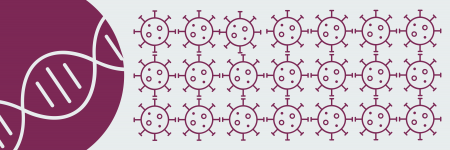
Looking back: genomics in 2021
As we approach the end of 2021, we look back on the key developments in genomics and their impact on healthcare and society

100,000 Genomes Project 2021 update: rare disease
How has rare disease diagnosis and treatment improved in light of data gathered from the 100,000 Genomes Project? Find out in the second part of our series…

100,000 Genomes Project 2021 update: cancer
In the first instalment of a two-part series, we look at how the 100,000 Genomes Project continues to impact cancer care

Diagnosing mitochondrial conditions: a WGS breakthrough
Mitochondrial conditions can be difficult to diagnose – but why, and how can genomic technology help?

Polycystic kidney disease and genomic testing
We explore genomics’ role in the cause, diagnosis and treatment of a complex kidney condition

Covid-19 'neanderthal' gene variants explained
In light of new research, we revisit the role our genome plays in the severity of Covid-19 symptoms

NICE approves RNAi therapy for porphyria
This week, we look at the latest gene silencing treatment approved by NICE – this time for an acute form of porphyria

Reading DNA - where to start?
This week, we learn all about directionality in DNA and why it matters

World-first study shows WGS improves diagnostic journey
Impressive results make the case for the adoption of whole genome sequencing as "the genetic test of choice for rare disease patients"

Genes, hormones and blood pressure
This week, we explore genomics’ role in primary aldosteronism – a hormone disorder that leads to high blood pressure

Sequencing Covid-19: 1 million genomes
As the UK reaches a mega sequencing milestone, we look at how the data could be used to better prepare us for the future

GEP fellow publishes RNA splicing study
Jamie Ellingford and his co-authors explore the potential of computational tools to help us learn more about the messages our genes create


